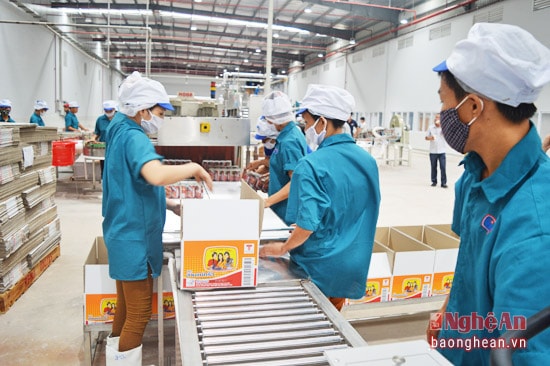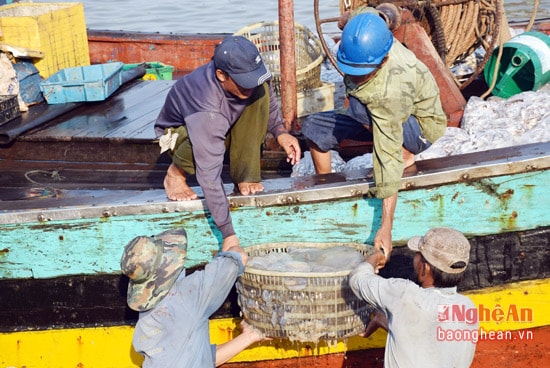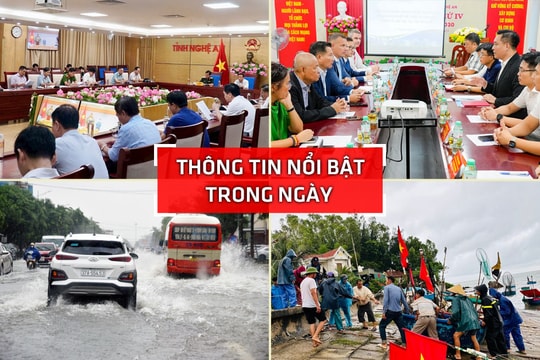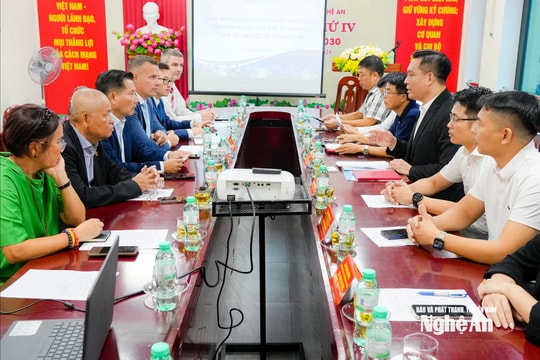Growth drivers in the second half of 2016
(Baonghean) - In the first half of 2016, Vietnam's economy maintained a fairly high growth momentum and controlled macroeconomic stability in most areas. This demonstrates the remarkable great efforts of the entire political system, the State, the business community, and people across the country, at all levels, sectors, and localities.
However, we cannot be indifferent and disregard the warning signs and messages about unsustainable development, reflected in the downward trend, lower than the same period last year, of a series of important macro indicators, such as the general GDP growth rate, the growth rate of the industrial and construction sectors and the agriculture, forestry and fishery sectors; in the total retail sales of goods, consumer service revenue and in a series of key export products (rice, iron and steel, rubber, crude oil); as well as in the state budget revenue.
Meanwhile, there is an alarming increase in pressure from the state budget deficit, public debt, unemployment, poverty rate and social security needs. In particular, Vietnam is facing the increasing risk of forests drying up, seas dying and rivers drying up, salinity, pollution of land and living environment, and fear of dirty food.
 |
| Product packaging at Royal Foods factory, Nam Cam Industrial Park - Photo: Lam Tung |
The economic growth momentum has declined due to both objective and subjective factors, such as extreme weather (cold, drought and salinization of cultivated land); competition for lower prices in the world market; increased environmental pollution, especially of the marine environment; and especially due to lax awareness and habits, even disregard for legal discipline.
We are becoming so familiar that we are numb to the "reverse process" of state management, where subordinates impose the rules of the game on superiors when forced into a "fait accompli" situation: That is the situation where the National Assembly regularly accepts that the actual deficit level reported by the Government is always higher than the annual budget deficit level approved by the National Assembly;
That is the situation where local authorities exceed their authority to handle and grant licenses to FDI enterprises and then "run the process" to legalize their decisions, regardless of the long-term and enormous consequences for society, reducing the capacity, effectiveness and efficiency of the socialist rule-of-law state that Vietnam is striving towards.
 |
| Fishermen in Dien Ngoc commune, Dien Chau district catch seafood (Illustration photo) |
The growth momentum in the second half of 2016 can hardly rely on expanding public investment, increasing public debt has reached its limit, even at risk of exceeding the ceiling by the end of 2016 (government debt alone has exceeded the ceiling since the end of 2015), but needs to come from accelerating the disbursement of public investment projects in the approved plan; from the performance of newly established enterprises, expanding production and returning to operation; from increasing investment capital outside the state budget and attracting foreign direct investment.
At the same time, continue to review, adjust and abolish hundreds of regulations and provisions in laws that are hindering business freedom; especially documents implementing the Investment Law and the Enterprise Law, with a spirit of openness and proactively removing difficulties, minimizing financial, credit and institutional burdens for businesses, and resolutely eliminating group interests that dominate policies.
At the same time, continue to flexibly manage interest rates and exchange rates; prioritize credit for agriculture, rural areas, small and medium enterprises, supporting industries, processing and manufacturing industries, linked to advantages in developing agricultural, forestry and fishery raw materials; focus on transforming the agricultural production structure to adapt to and overcome the shortcomings of climate change.
Promote labor export and support fishermen to build new ships and large boats to go offshore; restore fishing grounds and fishing, aquaculture and seafood consumption activities in localities with polluted marine environment; increase professional and effective trade promotion activities, apply new preservation technology and expand export markets, especially for our country's key agricultural export products...
Strengthen the overall review to prevent early risks from projects with environmental emissions nationwide; assign and investigate, clarify the responsibilities of individuals and units in environmental monitoring and protection, and strictly punish violations by anyone, regardless of rank, current or transferred, or retired.
Vietnam's economy has always developed below its potential. However, our country's environment and resources are being exploited to the limit. Vietnam's legal system is becoming more and more solid, but awareness and compliance habits, and the actual effectiveness of the laws seem to be increasingly blurred, distorted or invalidated due to negligence, insensitivity, irresponsibility and the increasingly powerful and arrogant influence of interest groups.
New sustainable growth drivers from institutional breakthroughs, tightening discipline, and respecting the law are really necessary to fuel, accelerate, and improve the efficiency of economic development, ensure social security, and protect the living environment according to the requirements of sustainable development in the coming time.
Dr. Nguyen Minh Phong
| RELATED NEWS |
|---|




.jpg)



